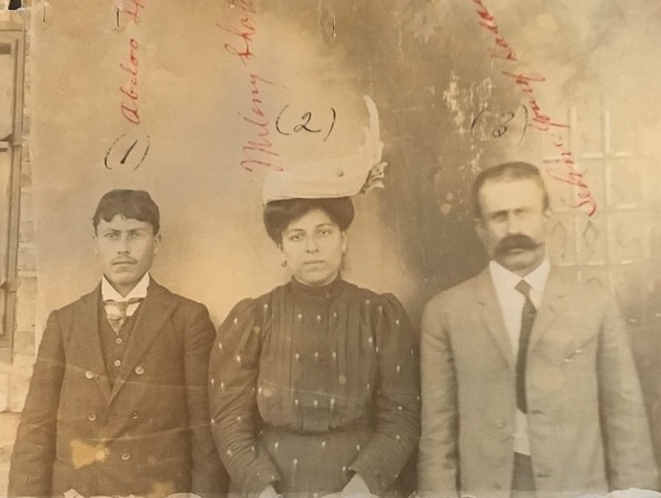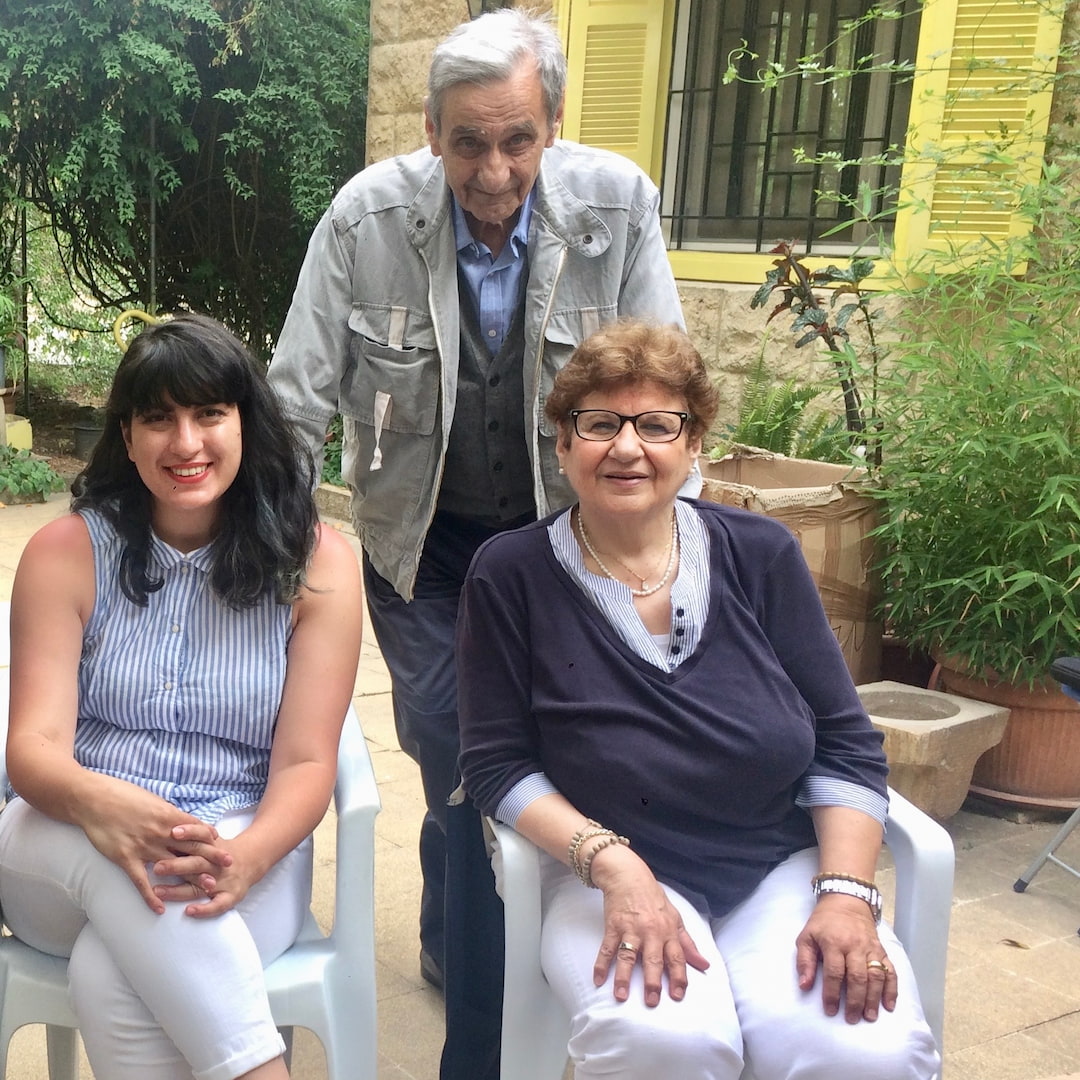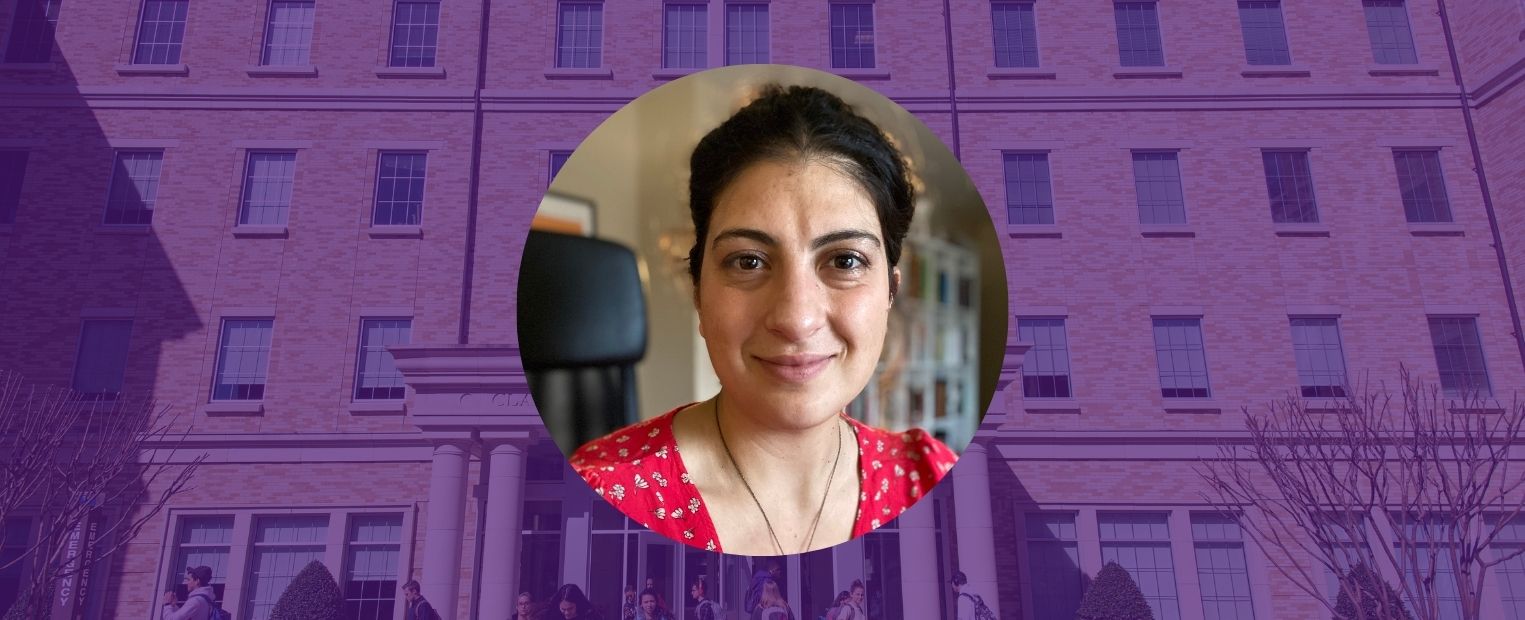Randa Tawil, Ph.D., assistant professor of women and gender studies, has spent years studying migrants who traveled from Greater Syria to the U.S. and writing about the concept of “good” and “bad” migrants as seen through the lens of mobility.
In early April, Tawil learned she was the recipient of the American Council of Learned Societies (ACLS) Marwan M. and Ute Kraidy Centennial Fellowship in the Study of the Arab World and Latin America, a position devoted to full-time research and/or writing. The title of Tawil’s project is “Race in Transit: Mobilities Between Great Syria and U.S. Empire.”
Tawil, who joined the TCU faculty in 2020, applied for the fellowship in August 2023 with a written proposal. The fellowship supports scholars pursuing research in any field of the humanities and social sciences related to the Arab or Latin American world.
“I found out I had received the fellowship just after teaching a class, and I was extremely excited,” Tawil said. “You just never know with fellowships like this. I applied three times, so it was really a wonderful surprise.”
Inside the Research
“Race in Transit” follows the itineraries of early 20th-century migrants from Greater Syria, which comprised what is now Lebanon, Palestine and parts of Jordan and modern Syria. Tawil details the empires’ immigration infrastructures that the migrants had to pass through.

“I look at how people traveled to the Americas — the routes they took and the officials they met along the way, including border inspectors, public health inspectors and police,” Tawil said. “For example, if you were coming from Ottoman Syria to the Americas, you would pass through Ottoman officials, French officials, sometimes British or Mexican officials, before entering the U.S. I argue that mobility is instrumental in shaping our perceptions of migrants’ race and gender even before they arrive here.”
Through her research and writing, Tawil strives to accurately tell the story of migrants who face institutional struggles as they seek a better life.
“For me, it’s about thinking through a longer history of dispossession within the Middle East,” she said. “And as someone who is very invested in migrant justice, I argue that in the U.S., we have the rhetoric of the ‘good’ migrant versus the ‘bad’ migrant. What’s clear from my research is that when migrants must travel and navigate through these power structures to reach borders, they often end up being categorized in certain ways. The government somewhat blames migrants for their own misfortunes, as opposed to really investigating the inequities of travel itself.”
Seeking Migrants’ Stories
Tawil’s research has taken her all over the world in search of official records that document the Greater Syrian migration experience. She has searched state archives in England, France, Lebanon and Mexico, as well as the National Archives in Washington, D.C.

“The state archives hold only a small part of the migrant story,” Tawil said. “To get a fuller picture, I rely on the people and their own travels. I’ve also looked at newspaper articles, memoirs and oral histories. It’s a lot of different types of research, but mostly grounded in archival records.”
The travel involved in research has proved to be the greatest challenge to her project, Tawil noted.
“The ACLS Fellowship is so important because I am committed to a transnational method to unearth these different stories that often get hidden in national archives,” she said. “There is a lot of travel for me because I am writing about people whose stories are not in just one archive, so it takes a long time to stitch them together.”
The ACLS Fellowship has helped Tawil feel more confident about her project because people at the highest level have expressed excitement about the topic.
“It’s very encouraging,” she said. “Working on a book can be slow and frustrating, and you’re by yourself most of the time, so it’s easy to lose perspective. In that sense, the fellowship is very affirming. Hopefully, my research is something that people will care about and it will spread.”
